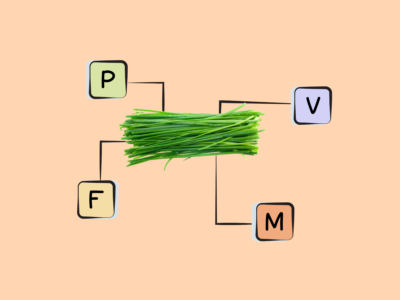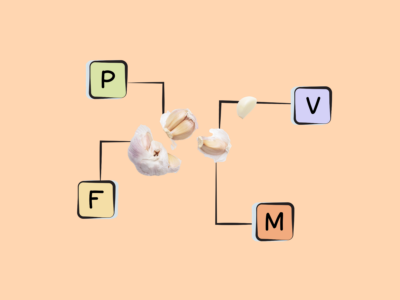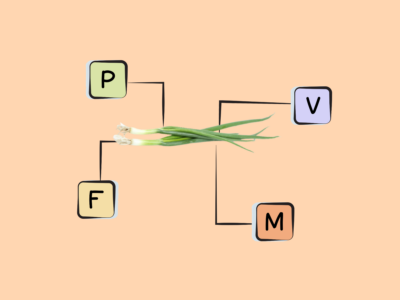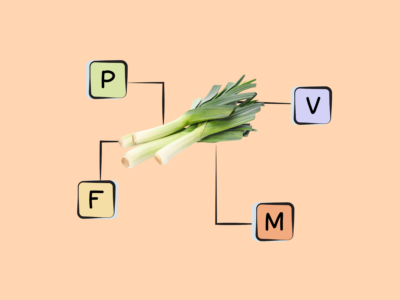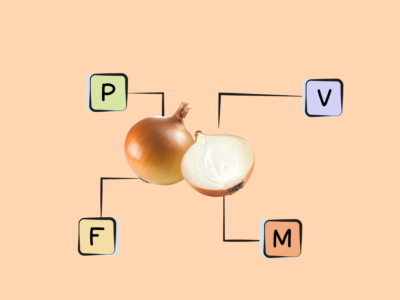Health Benefits of Alliums
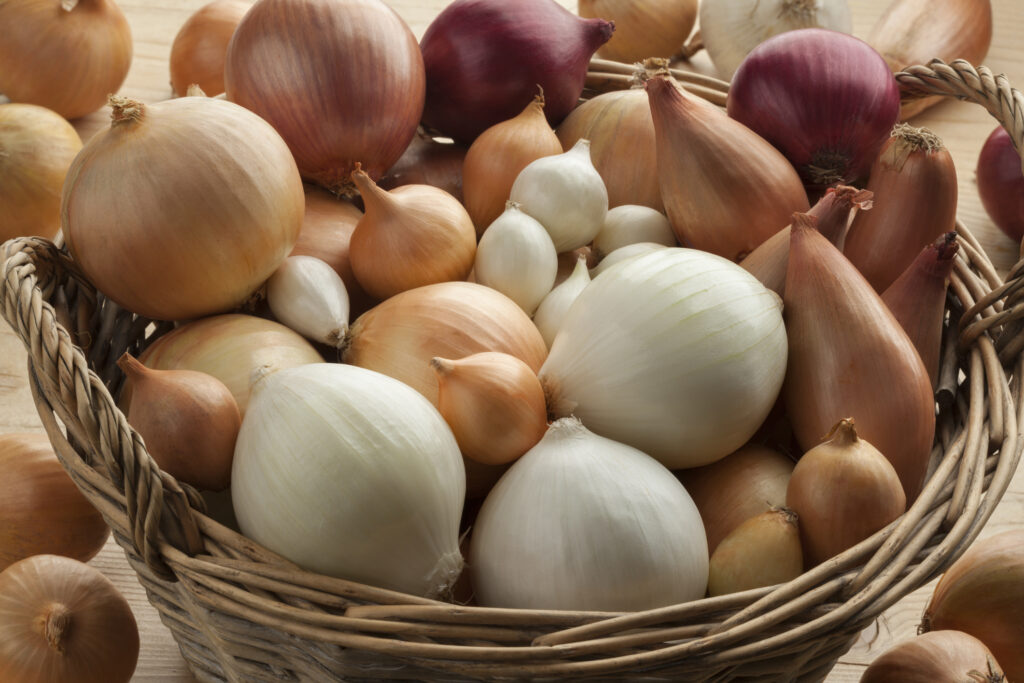
The onion family, also known as alliums, includes hundreds of different species belonging to the genus Allium, although the ones we’re most likely to see on a dinner plate are onions, garlic, leeks, chives, scallions, and shallots. The word “allium” is believed to derive from the Greek ἀλέω (or aleo), which means “avoid,” and refers to the potent odor of these vegetables!
Nutritionally, alliums tend to be excellent sources of fiber, vitamin B6, folate, vitamin C, vitamin K, manganese, potassium, and iron. What’s more, alliums boast a number of important phytonutrients—most notably the organosulfur compounds (such as cepaenes and thiosulfinates) that characterize their taste, but also kaempferol, quercetin, fructans, ferulic acid, caffeic acid, anthocyanins (in red- or purple-colored alliums), beta-carotene (in green alliums like spring onions and chives), flavonols (in yellow-fleshed and brown-skinned onions), chlorophyll (in leeks, chives, and scallions), saponins, and myricetin and apigenin (especially in garlic).
Studies show that for every 100 grams per day of alliums, risk of all-cause mortality decreases by 24%. But, we don’t need to eat that much alliums to benefit: Eating ½ serving per day decreases cardiovascular disease by 21% compared to rarely eating alliums, and one study found that men consuming a mere 10 grams of onions per day were 70% less likely to develop prostate cancer than men consuming under 2 grams of onions daily.
Let’s take a look at the health benefits associated with vegetables from the allium family!
Allium Vegetables Are Cardioprotective
A 2020 systematic review and meta-analysis, covering 81 cohort studies (4 031 896 subjects!), examined the impact of different fruits and vegetables with cardiovascular outcomes and found a 67% lower risk of CVD mortality, a 33% reduced risk of coronary heart disease mortality, and an 11% reduced risk of stroke with highest versus lowest consumption of allium vegetables. Impressive!
Allium Vegetables Protect Against Cancer
Where allium vegetables really shine is in their chemoprotective capabilities. Epidemiological studies suggest that allium vegetable intake reduces the risk of several types of cancer. The protective effect appears to be related to the presence of organosulfur compounds, which include dithiolethiones, diallyl sulfide, and sulforaphane. Organosulfur compounds exert their effects by modulating important enzymes (the cytochrome P450 family and glutathione S-transferases) that help detoxify carcinogens and prevent DNA adducts from forming. One specific organosulfur compound, diallyl sulfide, also acts as potent antimicrobial properties and can help fight the stomach ulcer bacteria, H. pylori.
Let’s take a look at some of the epidemiolocal studies evaluating allium vegetables and cancer!
A 2021 systematic review and meta-analysis, covering 97 cohort studies, found a 21% reduced risk of ovarian cancer with consumption of allium vegetables.
A 2016 meta-analysis, covering 21 case-control and 4 cohort studies, found a 21% reduced risk for squamous cell carcinoma of the upper aerodigestive tract, when comparing highest versus lowest consumption of total allium vegetables. Cancers of the upper aerodigestive tract include cancers of the oral cavity, pharynx, larynx, and esophagus.
A 2015 case control study and meta-analysis evaluated the association between allium vegetable intake and gastric (stomach) cancer. The meta-analysis included 10 case-control and four cohort studies. A 22% reduced risk in gastric cancer was observed for highest versus lowest intake of allium vegetables. Data from an Italian case-control study including 230 cases and 547 controls showed a 30% reduced risk in gastric cancer for frequent use of both garlic and onion. While a 2011 meta-analysis, covering 19 case-control and 2 cohort studies (543 220 subjects) found 46% reduced risk of gastric cancer in highest versus lowest consumption of allium vegetables. A dose response meta-analysis based on three case-control studies, indicated that an increment of 20 grams of allium vegetables per day was associated with a statistically significant 9% decreased risk of gastric cancer! Overall, an increase in Allium vegetable consumption of 20 gramps per day (approximately the average weight of 1 garlic bulb) was associated with a statistically significant 9% decreased risk of gastric cancer for case control studies from the dose-response meta-analysis.
Both in vitro and in vivo studies have shown that allium vegetables have an antibacterial effect against H pylori, which is a key risk factor for gastric cancer. And, a 2016 systematic review showed that in patients infected with Helicobacter pylori (H. pylori), which is the main risk factor for developing gastric cancer, high consumption of allium family vegetables had a protective effect.
A 2014 meta-analysis, covering 16 studies and 13 333 cases, evaluated the association between allium vegetable intake and colorectal cancer and adenomatous polyps (precursors of colorectal cancer). Based on four studies, a 22% reduced risk of colorectal cancer and a 12% reduced risk of colorectal adenomatous polyps was observed for highest versus lowest intake of total allium vegetables.
A 2013 meta-analysis, covering six case-control and three prospective cohort studies (including 132 192 subjects), found an 18% reduced risk of prostate cancer for intake of allium vegetables when comparing highest versus lowest consumption. While a 2002 population-based, case-control study conducted in Shanghai, China found that men consuming 10 grams or more total allium vegetables per day were 49% less likely to develop prostate cancer than men consuming under 2.2 grams daily.
A 2005 case-control study in Shanghai (832 cases and 846 controls) found a 24% reduced risk of endometrial cancer in the highest versus lowest quartile of allium vegetable intake. In premenopausal women, the results were even more pronounced with a 59% reduced risk!
To summarize, a variety of prospective cohort and case-control studies have found that overall allium vegetable consumption is associated with lower risk of:
- colorectal cancer (up to an 22% lower risk),
- endometrial cancer (up to a 24% lower risk; 59% lower risk in premenopausal women),
- gastric cancer (up to a 46% lower risk),
- ovarian cancer (up to an 21% lower risk),
- prostate cancer (up to a 49% lower risk), and
- upper aerodigestive tract [including oral cavity, pharynx, larynx, & esophagus] (up to a 21% lower risk).
Yes, allium vegetables are absolute rock stars when it comes to our health!
Learn What Foods to *ADD* to Your Diet
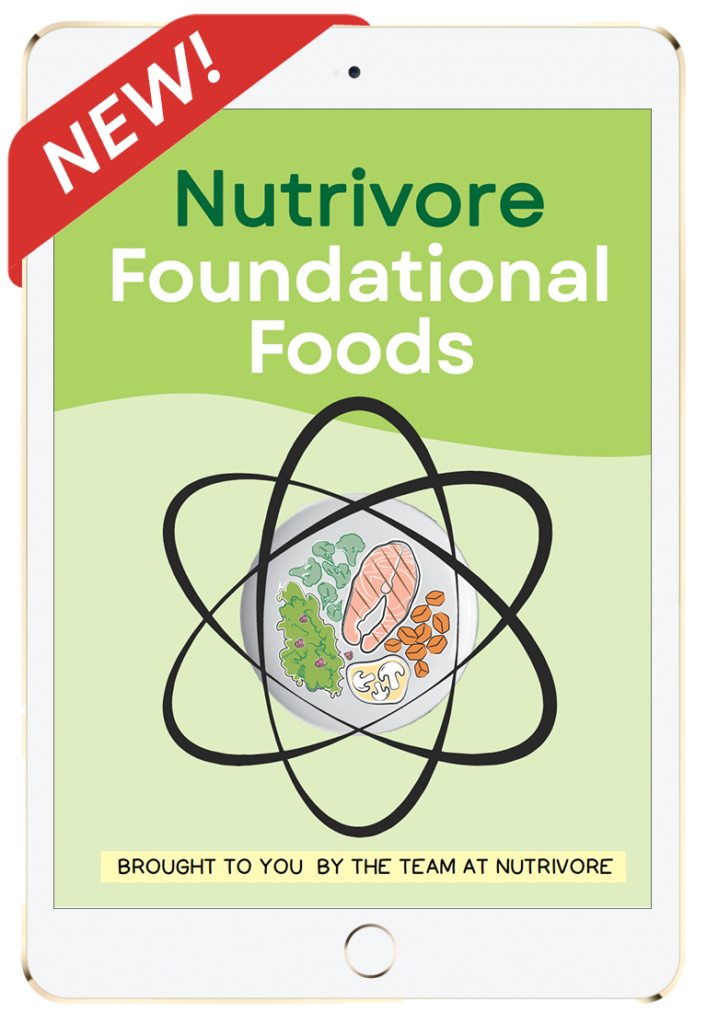
Nutrivore Foundational Foods
Learn what makes the 12 Nutrivore foundational food families nutritionally unique, their health benefits, which options are the most nutrient dense, how much of them to eat, plus various fun facts, practical pointers, and busting of common myths.
This very helpful resource will introduce you to new foods and expand your nutrition knowledge, making food choices easier!
Buy now for instant digital access.
Examples of Alliums
- chives
- elephant garlic garlic
- leek
- onion
- scallion
- spring onion
- shallot
- ramp
Nutrients in Alliums
Easily track your servings of Nutrivore Foundational Foods!
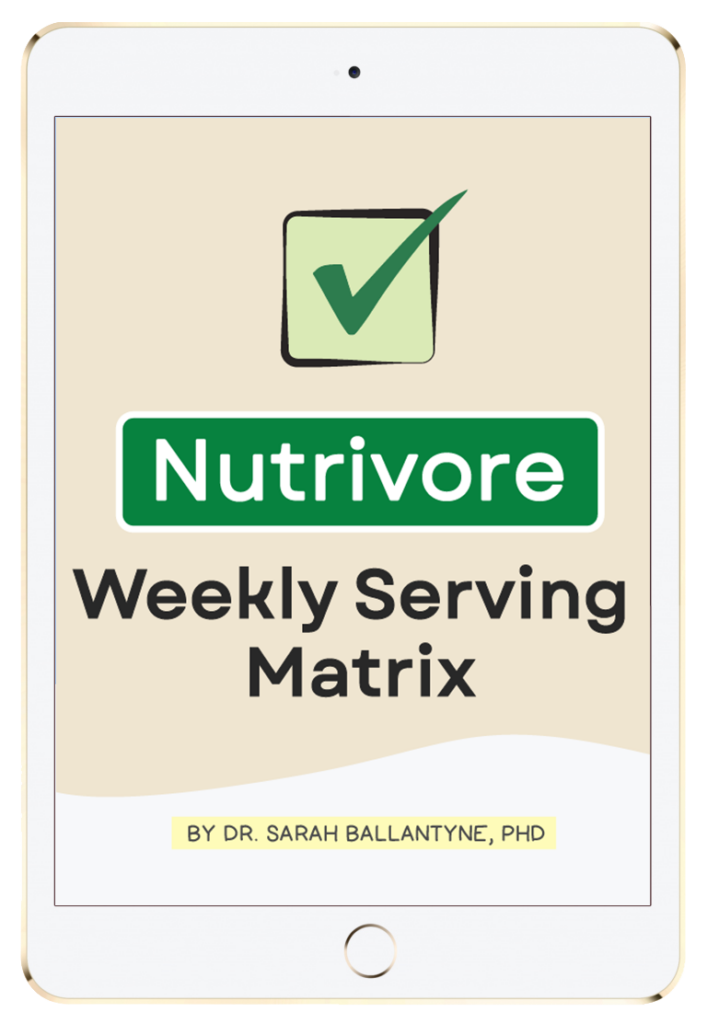
The Nutrivore Weekly Serving Matrix
The Nutrivore Weekly Serving Matrix digital resource is an easy-to-use and flexible weekly checklist designed to help you maximize nutrient-density and meet serving suggestions of Nutrivore foundational foods, all without having to weigh or measure your foods!
Includes a 22-page instructional guide and downloadable interactive guides.
Buy now for instant digital access.
Help me to keep building Nutrivore.com
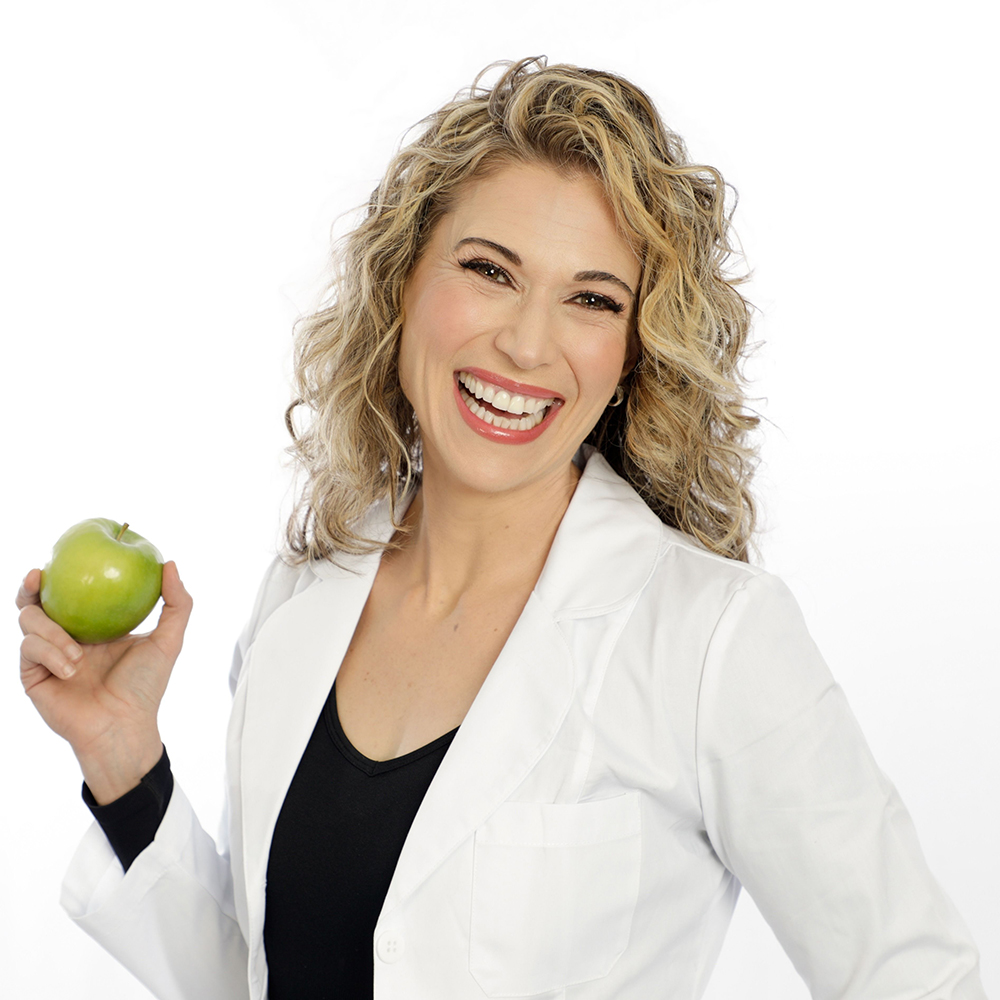
I’m working on writing more awesome articles on this topic to be featured right here on this webpage. If you’re enjoying the content my team and I have created thus far and would like to see more, you can support our efforts to keep building out this site by joining the Nutrivore community on Patreon!
Plus every month, you’ll gain exclusive and early access to a variety of resources, including a weekly video podcast, a new e-book in a series, nutrient fun factsheet, and more! Sign up now and also get 5 free Nutrivore guides as a welcome gift! Win-win-win!
Citations
Expand to see all scientific references for this article.
Chegeni TN, Fakhar M, Ghaffarifar F, Saberi R. Medicinal Plants with anti-Acanthamoeba Activity: A Systematic Review. Infect Disord Drug Targets. 2020;20(5):620-650. doi: 10.2174/1871526519666190716095849.
García Martín R, Matía Cubillo Á. Influencia de la dieta en la prevención primaria del cáncer gástrico. EN PACIENTES CON INFECCIÓN POR HELICOBACTER PYLORI [INFLUENCE OF DIET IN PRIMARY PREVENTION OF GASTRIC CANCER, IN PATIENTS INFECTED WITH HELICOBACTER PYLORI]. Rev Enferm. 2016 May;39(5):33-8. Spanish.
Guercio V, Galeone C, Turati F, La Vecchia C. Gastric cancer and allium vegetable intake: a critical review of the experimental and epidemiologic evidence. Nutr Cancer. 2014;66(5):757-73. doi: 10.1080/01635581.2014.904911. Epub 2014 May 12.
Guercio V, Turati F, La Vecchia C, Galeone C, Tavani A. Allium vegetables and upper aerodigestive tract cancers: a meta-analysis of observational studies. Mol Nutr Food Res. 2016 Jan;60(1):212-22. doi: 10.1002/mnfr.201500587. Epub 2015 Nov 9.
Hirohata T, Kono S. Diet/nutrition and stomach cancer in Japan. Int J Cancer. 1997;Suppl 10:34-6. doi: 10.1002/(sici)1097-0215(1997)10+<34::aid-ijc9>3.0.co;2-a.
Hsing AW, Chokkalingam AP, Gao YT, Madigan MP, Deng J, Gridley G, Fraumeni JF Jr. Allium vegetables and risk of prostate cancer: a population-based study. J Natl Cancer Inst. 2002 Nov 6;94(21):1648-51. doi: 10.1093/jnci/94.21.1648.
Khodavandi A, Alizadeh F, Razis AFA. Association between dietary intake and risk of ovarian cancer: a systematic review and meta-analysis. Eur J Nutr. 2021 Jun;60(4):1707-1736. doi: 10.1007/s00394-020-02332-y. Epub 2020 Jul 13.
Tao MH, Xu WH, Zheng W, Gao YT, Ruan ZX, Cheng JR, Xiang YB, Shu XO. A case-control study in Shanghai of fruit and vegetable intake and endometrial cancer. Br J Cancer. 2005 Jun 6;92(11):2059-64. doi: 10.1038/sj.bjc.6602609.
Turati F, Guercio V, Pelucchi C, La Vecchia C, Galeone C. Colorectal cancer and adenomatous polyps in relation to allium vegetables intake: a meta-analysis of observational studies. Mol Nutr Food Res. 2014 Sep;58(9):1907-14. doi: 10.1002/mnfr.201400169. Epub 2014 Jun 27.
Turati F, Pelucchi C, Guercio V, La Vecchia C, Galeone C. Allium vegetable intake and gastric cancer: a case-control study and meta-analysis. Mol Nutr Food Res. 2015 Jan;59(1):171-9. doi: 10.1002/mnfr.201400496. Epub 2014 Oct 8.
Zhou XF, Ding ZS, Liu NB. Allium vegetables and risk of prostate cancer: evidence from 132,192 subjects. Asian Pac J Cancer Prev. 2013;14(7):4131-4. doi: 10.7314/apjcp.2013.14.7.4131.
Zhou Y, Zhuang W, Hu W, Liu GJ, Wu TX, Wu XT. Consumption of large amounts of Allium vegetables reduces risk for gastric cancer in a meta-analysis. Gastroenterology. 2011 Jul;141(1):80-9. doi: 10.1053/j.gastro.2011.03.057. Epub 2011 Apr 5.
Zurbau A, Au-Yeung F, Blanco Mejia S, Khan TA, Vuksan V, Jovanovski E, Leiter LA, Kendall CWC, Jenkins DJA, Sievenpiper JL. Relation of Different Fruit and Vegetable Sources With Incident Cardiovascular Outcomes: A Systematic Review and Meta-Analysis of Prospective Cohort Studies. J Am Heart Assoc. 2020 Oct 20;9(19):e017728. doi: 10.1161/JAHA.120.017728. Epub 2020 Oct 1.



